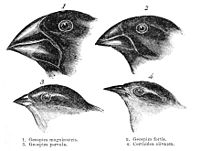
Photo from wikipedia
Running is a popular and convenient leisure-time physical activity (PA) with a significant impact on longevity. In general, runners have a 25%-40% reduced risk of premature mortality and live approximately… Click to show full abstract
Running is a popular and convenient leisure-time physical activity (PA) with a significant impact on longevity. In general, runners have a 25%-40% reduced risk of premature mortality and live approximately 3 years longer than non-runners. Recently, specific questions have emerged regarding the extent of the health benefits of running versus other types of PA, and perhaps more critically, whether there are diminishing returns on health and mortality outcomes with higher amounts of running. This review details the findings surrounding the impact of running on various health outcomes and premature mortality, highlights plausible underlying mechanisms linking running with chronic disease prevention and longevity, identifies the estimated additional life expectancy among runners and other active individuals, and discusses whether there is adequate evidence to suggest that longevity benefits are attenuated with higher doses of running.
Journal Title: Progress in cardiovascular diseases
Year Published: 2017
Link to full text (if available)
Share on Social Media: Sign Up to like & get
recommendations!